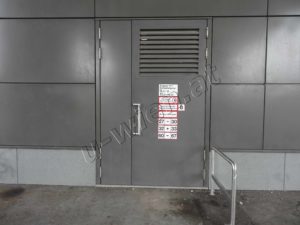The expansion of the metro network is crucial to meet the growing demand for public transportation in growing cities. These expansions not only provide new transportation options, but also contribute to economic development and quality of life in urban areas. In this article, we take a closer look at the challenges and opportunities in developing metro networks.
The need for metro expansion
As the urban population continues to grow, so does the need for efficient transportation. Congestion, pollution, and road traffic constraints make metros an attractive option for urban transportation. Expansion of the metro network is critical to meet public transportation needs and accommodate the increasing number of commuters.
Network development challenges
Funding
One of the biggest challenges in expanding the metro network is funding. Building subway lines requires significant investment in infrastructure, vehicles, and operations. Raising funds and securing long-term financing are important hurdles to overcome.
Construction projects and permits
Building a subway line is a complex project that requires permits, planning and land acquisition. This can be time-consuming and involve bureaucratic hurdles that delay the construction process.
Technical challenge
Building subway lines under densely populated neighborhoods is a technical challenge. Tunneling, groundwater management, and integrating new lines into existing networks require expertise and resources.
Operational challenges
Once a new subway line is in operation, it must function efficiently and safely. This requires training staff, maintaining vehicles and infrastructure, and ensuring smooth integration with existing networks.
Network development opportunities
Improve mobility
The expansion of the metro network has greatly improved transportation in the city. It reduces commute times, facilitates employment and educational opportunities, and provides citizens with a reliable means of transportation.
Economic development
The expansion of the subway boosts the economy by opening up new commercial and residential areas. Increasing demand for real estate near subway stations often leads to an increase in property values.
Environmentally friendly transportation
Metros are environmentally friendly modes of transportation because they can significantly reduce CO2 emissions compared to single-occupancy vehicles. Promoting public transportation can help reduce air pollution and combat climate change.
Improved quality of life
A well-developed metro network helps improve the quality of life in the city. It reduces traffic noise, facilitates the use of recreational facilities, and relieves traffic congestion and traffic pressure.
Summary
The expansion of metro networks presents challenges and opportunities to cities around the world. Addressing these challenges requires extensive planning, funding, and technical expertise. However, the opportunities are enormous, ranging from improving travel options to economic development to promoting sustainable transportation solutions. Metro expansion is an important step on the path to a livable, well-connected, and sustainable city of the future.



